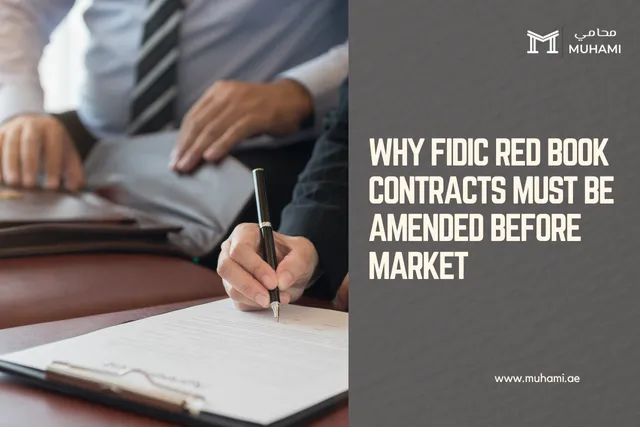How effective is a Non-Compete clause in an Employment Contract in the UAE?

What is a Non-Compete clause?
A non-compete clause is a provision in an employment contract between a Company and its Employee. This clause restricts the Employee from competing with the Company for a maximum period of 2 years after the termination of the employment contract.
What does the Law say exactly?
-
If an employee gains knowledge of the employer's clients or secrets, the employer can require a non-compete clause after the contract ends.
-
The non-compete clause must be limited in time, place and type of work to protect the employer's legitimate business interests.
-
The non-compete period cannot exceed two years from the contract's expiry date.
-
The non-compete requirement is nullified if the employer violates the employment contract terms.
-
The employer's claim for a worker's violation of the non-compete clause must be filed within one year of discovering the violation.
Legal Basis
In the United Arab Emirates, Art. 10 of the Labour Law (Federal Decree-Law No. (33) of 2021), which is specified in Art. 12 of the Implementing Regulation (Cabinet Resolution No. (1) of 2022), as well as in Art. 909 et seq. of the Civil Code (Federal Law No. (5) of 1985) have given the legal basis for the Company to include a Non-Compete clause in the Employment Agreement.
How effective is a Non-Compete clause in the Employment Contract?
One misconception among the public, especially business owners, is that 'if something is in an agreement, it can be easily enforced'. This is far from the truth. Laws, particularly employment laws, are enacted to ensure justice for affected parties rather than granting undue advantage to one side.
While the legislative intent is clear, the practical enforceability of clauses like non-compete raises questions. Can a company enforce a stringent restriction on an employee solely based on such a clause?
In order to understand this, we need to examine how the judiciary or Courts of the UAE have actually dealt with similar matters and the limitations they have imposed on companies in similar cases of violating non-compete clauses.
In a case of non-compete clause violation, the Courts will consider the following:
- Valid Agreement: The agreement must be signed by both parties and comply with the Regulations.
- Direct harm to the Business interest: The Company must be able to convince the Court that the Employee's new position poses a genuine threat to their legitimate business interests.
- Reasonableness of Restrictions: The Court will assess whether the timeframe and scope of the non-compete are reasonable in light of the Employee's role and the specific industry.

The UAE Courts do not support broad and exhaustive non-compete clauses. They view such clauses as unfair and unreasonable, as they restrict the Employee's ability to make a living.
To avoid such a situation, the Company should include the following specific and relevant details in the Non-Compete clause, which can cause harm to the legitimate business interests of the Company:
- Exact area of operation or expertise;
- Specialised type of work; and
- Geographical scope.
For example, avoid including a non-compete clause that prevents an IT engineer from working in any other IT company - this is too general. However, the Company can specify a particular project in which competing companies may be involved. If such a competitor employs the Employee, it could harm the Company's business interests due to the Employee's knowledge of inside information related to that specific project.
Exemptions for the Employee
The Employee is exempted from the consequences of the breach of non-compete clause in the following circumstances:
- If the Employment Contract is terminated for reasons attributed to the Company or is based on the Company's breach of its legal or contractual obligations or breach of Labour Law;
- Termination during the probation period; and
- The Parties waive the non-competition restriction by a written agreement in accordance with the Implementing Regulation.
Scope of Compensation in case of breach by the Employee
If a non-compete clause requires the Employee to pay liquidated damages, the Employee must prove the pre-estimated loss amount wasn't actually suffered by the Company. However, the penalty cannot be so high that it forces the Employee to stay with the Company. Also, in certain cases, it is also accepted that by paying up to three months' salary, the non-compete restriction can be removed.
Further, including a contractual penalty in the employment contract pre-determines the claim amount in case of a breach, avoiding the difficulty of proving and quantifying individual damage. This helps prevent legal uncertainty by avoiding varying court interpretations.
The effectiveness and reasonableness of a non-compete or liquidated damages clause and whether the Employee breached the contract are judged by the Courts. The UAE Courts review non-compete clauses based on each case's specific evidence.
Enforceability in the Real World
Standard non-compete clauses in contracts often don't work well because they must meet specific legal requirements. Even if these clauses are invalid, they might still discourage employees from joining competitors but don't fully protect the Company. Enforcing a valid non-compete clause can be long, costly and uncertain. Using a liquidated damages clause is a better option since it avoids the difficulty of proving actual losses. Without it, companies must use general civil law claims, which are harder to enforce.
What if a Non-Compete clause is not included in the original employment contract?
If a non-compete clause isn't in the original contract, it can be added during a mutual termination agreement. While Labour Law requires the Employee's consent, the courts generally accept this approach. However, employees don't have to agree to a non-compete clause if it wasn't part of the initial contract, especially when leaving the job.
Conclusion
Enforcing a non-compete agreement in the UAE is tough. It involves gathering proof and dealing with complex legal steps, which take a lot of time and money. This often makes people think twice about going to Court.
To make it work, the Company needs to present a strong case, prove that they've been harmed and argue that the restrictions are fair in Court.
Non-compete agreements can have serious consequences for both the Company and Employee if they're not handled right. We always emphasise that well-crafted agreements tailored to specific business needs and compliant with regulations can always create a safety net for the Company protecting their legitimate business interests.
Any Questions?
Connect with lawyers and seek expert legal advice
Share
Find by Article Category
Browse articles by categories
Find Article by Practice Area
Browse articles by practice area
Featured Partnership
Elevate HR and Search
HR Advisory | Search | Coaching
Related Articles

Solving property disputes in Dubai
A practical, step by step guide: Two things decide how a property dispute en…

Solving property disputes in Dubai
A practical, step by step guide: Two things de…

Cash locked in VAT is cash you cannot u…
A practical guide to reclaiming VAT on commercial real estate in the UAE Two…

Cash locked in VAT is cash you cannot use to run …
A practical guide to reclaiming VAT on commercial…

Why FIDIC Red Book Contracts Must Be Am…
Introduction For Owners and Contractors in the UAE, the unamended FIDIC Red …

Why FIDIC Red Book Contracts Must Be Amended Befo…
Introduction For Owners and Contractors in the…
